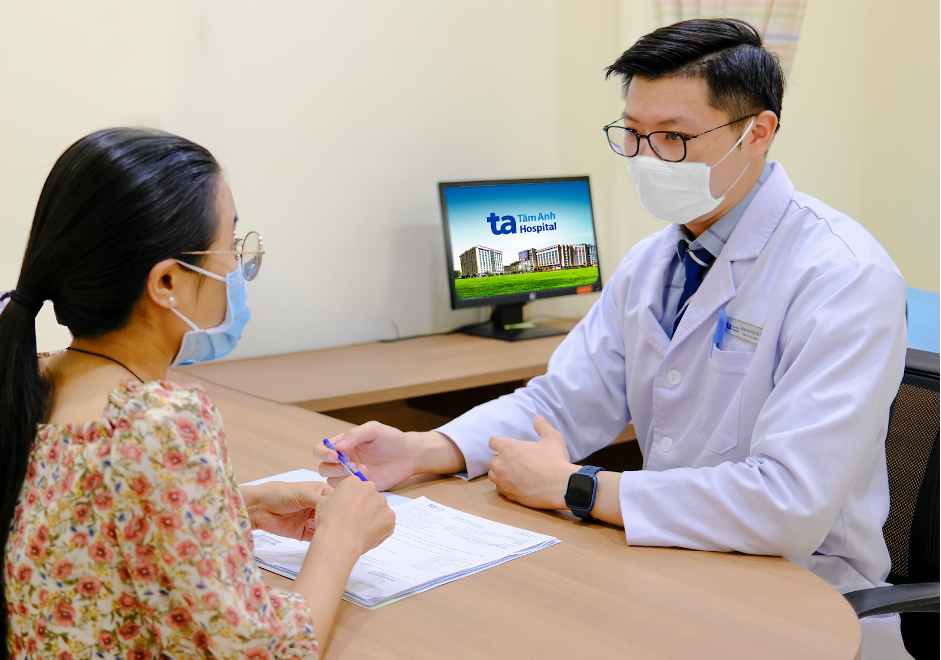Lung cancer occurs when tissues in the lungs grow abnormally and uncontrollably, becoming malignant. Common symptoms include a persistent cough, chest pain, shortness of breath, weight loss, and fatigue. In advanced stages, the disease invades nearby tissues and metastasizes to other organs.
Currently, the exact cause of lung cancer is unknown. However, several risk factors can contribute to the disease, including smoking, chronic lung diseases (tuberculosis, chronic bronchitis), occupational exposure to carcinogens (asbestos, heavy metals), and ionizing radiation (radon, X-rays).
Doctor Nguyen Tien Si, from the Oncology Department of Tam Anh General Hospital in TP HCM, says there's no method to completely prevent lung cancer or any cancer for that matter. However, there are ways to reduce the risk.
Avoid tobacco: Cigarette smoke contains over 7,000 harmful chemicals, including about 70 carcinogens. Not smoking and limiting exposure to secondhand smoke helps reduce the risk of lung diseases, including lung cancer. If there's a smoker in the house, open windows for ventilation, wash bedding frequently, and use an air purifier to minimize the effects.
 |
Doctor Si advises a patient. Illustrative photo: *Tam Anh General Hospital* |
Wear protective gear: People working in environments with hazardous chemicals like asbestos and radon should wear protective clothing and masks. Regularly checking the concentration of hazardous chemicals in the work environment can ensure safe levels. Wear a mask when going outside to avoid inhaling dust and pollution.
Maintain a balanced diet: A varied diet with adequate nutrition, including rice, meat, fish, eggs, shrimp, vegetables, and fruit, is essential. Limiting red meat, processed meat, and sugary drinks can strengthen the body's resistance, thereby reducing the risk of cancer, including lung cancer.
Adults shouldn't consume too much red meat. The National Institute of Nutrition recommends 50-70g of red meat per day for healthy adults, equivalent to one or two adult palms. The amount depends on gender, age, health status, and physical activity level. Prioritize boiling, steaming, and stir-frying over high-temperature frying, stewing, and grilling, as these methods can promote the production of carcinogens.
Exercise regularly: Everyone should exercise for at least 30 minutes daily, at least five days a week. This improves overall health and helps reduce the risk of various diseases, including lung cancer. Suitable exercises include walking, cycling, yoga, and swimming. Regular exercise is good for the lungs, stimulates the body to produce endorphins, and promotes relaxation and mental well-being.
Doctor Si recommends regular health check-ups. High-risk groups, such as people aged 50 and above and those with a history of smoking, should undergo screening and low-dose CT scans to check lung health. This can detect abnormalities early (if any) and facilitate effective treatment.
Bao Tram
| Readers can submit questions about cancer here for doctors to answer. |












